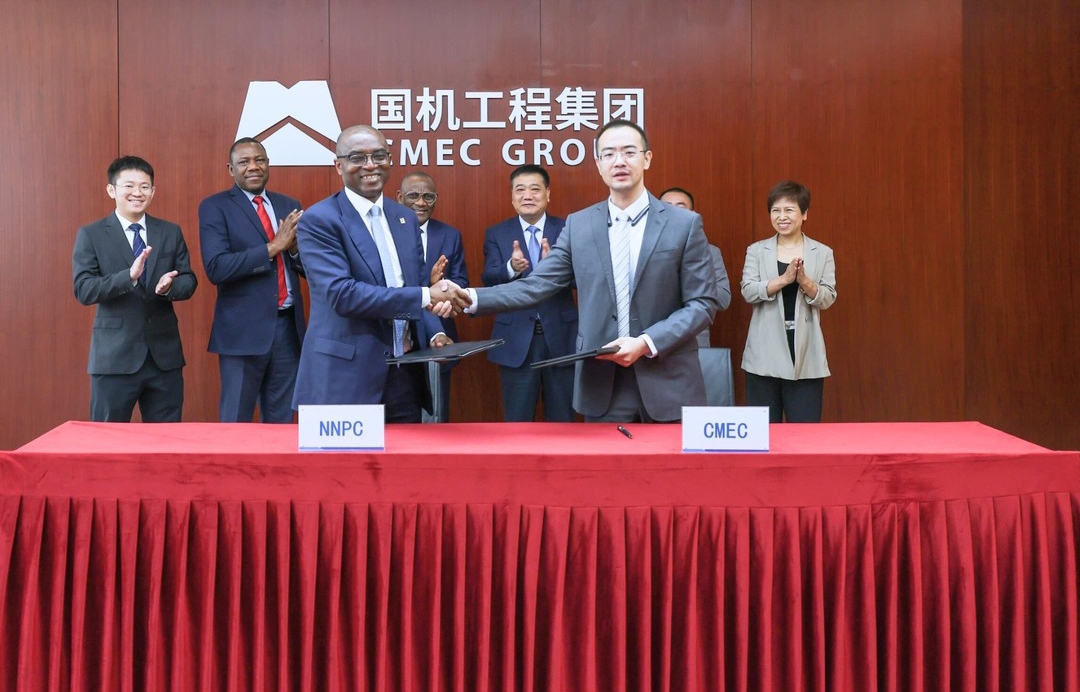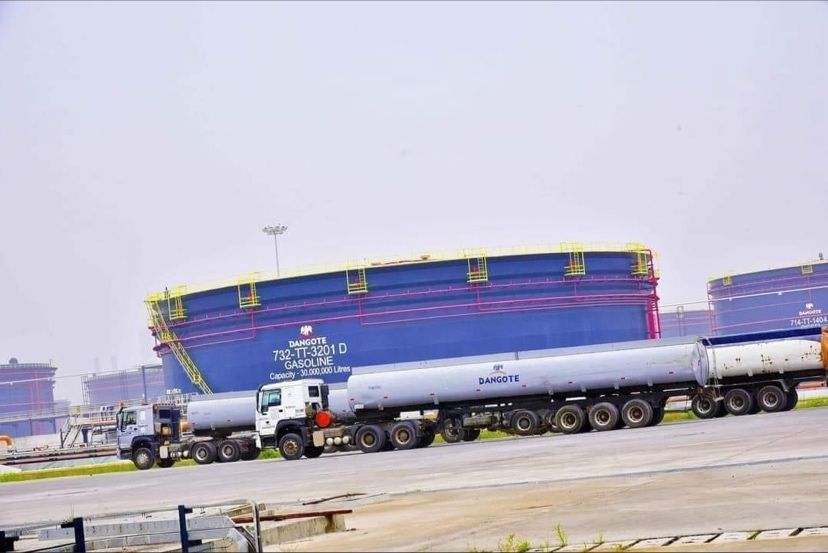The Nigerian National Petroleum Company Ltd. (NNPC Ltd.) has signed a deal with the China Engineering & Machinery Corporation (CMEC) for the co-funding of the Gwagwalada Independent Power Plant (GIPP) Phase-1 Project.
Persecomdnews reports that the Memorandum of Understanding was signed in Beijing, China.
The NNPC Ltd.’s Executive Vice President, Gas Power & New Energy, Mr. Olalekan Ogunleye, and the Chairman of CMEC Nigeria, Mr. Zhang Daguang, signed the agreement on behalf of their respective companies.
The 350 MW GIPP Phase 1 Project, also known as the Abuja IPP, is one of the key anchor projects of the Ajaokuta-Kaduna-Kano (AKK) Gas Pipeline Project, which aligns with Nigeria’s Gas Master Plan infrastructure blueprint.
Upon completion, the GIPP Phase 1 Project is expected to improve power generation, create job opportunities, reduce gas flaring, and engender industrial development.
Persecondnews recalls that President Bola Tinubu launched the project in August 2023, and experts have described it as a game-changer in Nigeria’s power sector.
The Federal Capital Territory (FCT), Abuja, has already acquired 547 hectares of land for the 1,350 MW combined cycle power plant with auxiliaries and the balance of the plant.
The project is expected to generate between $700 million and $800 million annually within the first 10 years of operations.
The GIPP was necessitated by the need for delivering gas towards additional power generation capacity in Nigeria.
According to the plan, gas will be supplied to the plant through the Ajaokuta-Kaduna-Kano (AKK) Gas Pipeline Project, which is currently in its advanced stages of construction.
The GIPP’s fuel requirements will be satisfied under a long-term Gas Sales, Purchase, and Aggregation Agreement with Shell Petroleum Development Company Joint Venture (SPDC JV).
The GIPP project consists of three power train blocks of 450 MW each. Each block will include two General Electric (GE) gas turbine generators, two heat recovery steam generators (HRSG), one steam turbine electric generator, one direct air-cooling condenser, a balance of plant equipment, and a black start diesel generator.
On completion, the GIPP Project will generate an average of 10.3 million megawatt hours (MWh) of electricity per year for sale to the Nigerian Bulk Electricity Trading Plc (NBET).
The NBET will sell the generated power through a Power Purchase Agreement (PPA) to distribution companies (Discos) under long-term agreements. and direct sale to major off-takers.
The NNPCL commissioned the 50 MW Maiduguri Emergency Power Plant (MEPP), a power generation project, prior to the GIPP with the goal of providing reliable and sustainable electricity to Maiduguri, the capital of Borno State, and its surroundings.
The region’s prolonged power outages over the past nine years made the project necessary.
These outages, caused by vandalism and insurgency attacks on power supply infrastructure, had resulted in a decline in economic activities in the region.
The power generation project, aside from providing reliable and sustainable electricity to the city of Maiduguri and its environs, will also be a significant addition to the many initiatives aimed at ensuring domestic gas utilisation.























Leave a comment